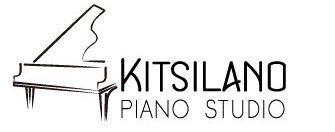Whatever discipline you are learning, it is always advisable to start young. A child’s brain is a sponge, which absorbs all knowledge and remembers it for a long-long time. If children learn quickly, what about in adulthood? Does an adult have the same approach to music as a child?
The first hours of learning the piano are often the most theoretical and the most difficult, they require great concentration and great listening skills. For an adult, the approach to music, and therefore to the piano, is different. An adult has already explored various musical styles and forged an established musical culture.
And not getting into the habit of seeing music as an accessible practice already makes it mentally more complicated. Fortunately, this psychological barrier is relatively easy to break down. So are the inferiority complex and thinking “I’ll never make it.”
Initially, the role of the music teacher is to break down these barriers that adults create for themselves. And once the approach has changed, there will be room for learning the piano: reading the notes (in treble clef and bass clef), deciphering, working on fingerings.
But adults will indeed learn less quickly than a 7-year-old. Why? Precisely because the latter is at the age (7 years) when the neuronal plasticity is the strongest, and it is the phase of an individual’s life where the connections of the brain are built the fastest.
A key advantage of a keyboard over violin or cello is that the former is a percussion instrument, which makes it easier for an amateur pianist to learn the instrument.
And, the piano notes are accessible directly under the fingers, unlike a guitar neck where you have to transpose or memorize said notes. Although learning the piano comes with many difficulties, the major advantage is the ability to listen to each note and recognize them, with a little musical ear.
Adults learn the piano differently
Oh yeah! Teaching an adult to play the piano is sometimes like walking a thin line, but it is also a special experience for a teacher. Especially if the teacher in question is younger than the student.
Before focusing on pure learning, it is important to establish a climate of trust, and a different relationship than the traditional student-teacher.
The important thing is to operate in stages, and by clear and precise objectives. Unlike a child who will have a more comprehensive and general education, the education given to an adult aged 40-45 must be well-targeted.
Is learning the piano for adults fast?
It is obviously in the way of approaching the piano lesson that matters.
As mentioned previously, the important thing is to adapt the content of the courses according to the age of the learner and to fulfill the objectives, which have been set little by little.
The teacher must take into account the musical culture, the inter-subjectivity of tastes, and the time available to the student.
A 40-year-old will not have the same learning time as a 65-year-old. The important thing, more than ever, when learning the piano as an adult, is of course consistency, motivation, and the desire to progress. We take advantage of the teacher’s advice, and we work on the basics. But, the most important thing is daily work, every day. Many piano books allow you to progress independently. And again, the secret to a busy adult schedule is to organize your time to improve your piano practice.
It is very effective, especially if you sing while playing. But if you’re not at that level, you’re just starting, here’s our advice: always play separate hands. First the left hand – for the rhythm – and then the right hand, for the melodies. Each student has a different rhythm, but the challenge is to coordinate the four hands and to read a score as one would read a book. There is no miracle cure, nor a gifted player by nature. Regularity and hard work allow you to know how to play musical instruments. And you have to train, always repeat over time.
